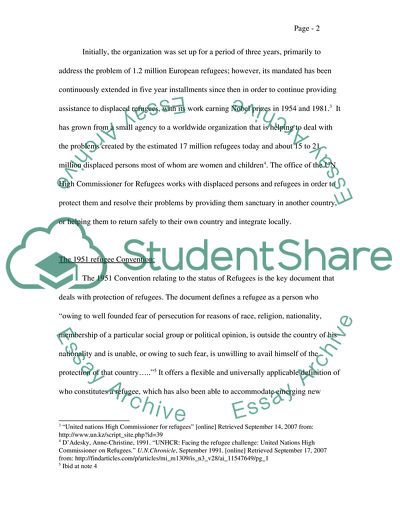Cite this document
(The Role of the UN High Commissioner for Refugees Research Paper, n.d.)
The Role of the UN High Commissioner for Refugees Research Paper. Retrieved from https://studentshare.org/social-science/1709120-the-role-and-impact-of-the-un-high-commissioner-for-refugees
The Role of the UN High Commissioner for Refugees Research Paper. Retrieved from https://studentshare.org/social-science/1709120-the-role-and-impact-of-the-un-high-commissioner-for-refugees
(The Role of the UN High Commissioner for Refugees Research Paper)
The Role of the UN High Commissioner for Refugees Research Paper. https://studentshare.org/social-science/1709120-the-role-and-impact-of-the-un-high-commissioner-for-refugees.
The Role of the UN High Commissioner for Refugees Research Paper. https://studentshare.org/social-science/1709120-the-role-and-impact-of-the-un-high-commissioner-for-refugees.
“The Role of the UN High Commissioner for Refugees Research Paper”, n.d. https://studentshare.org/social-science/1709120-the-role-and-impact-of-the-un-high-commissioner-for-refugees.


